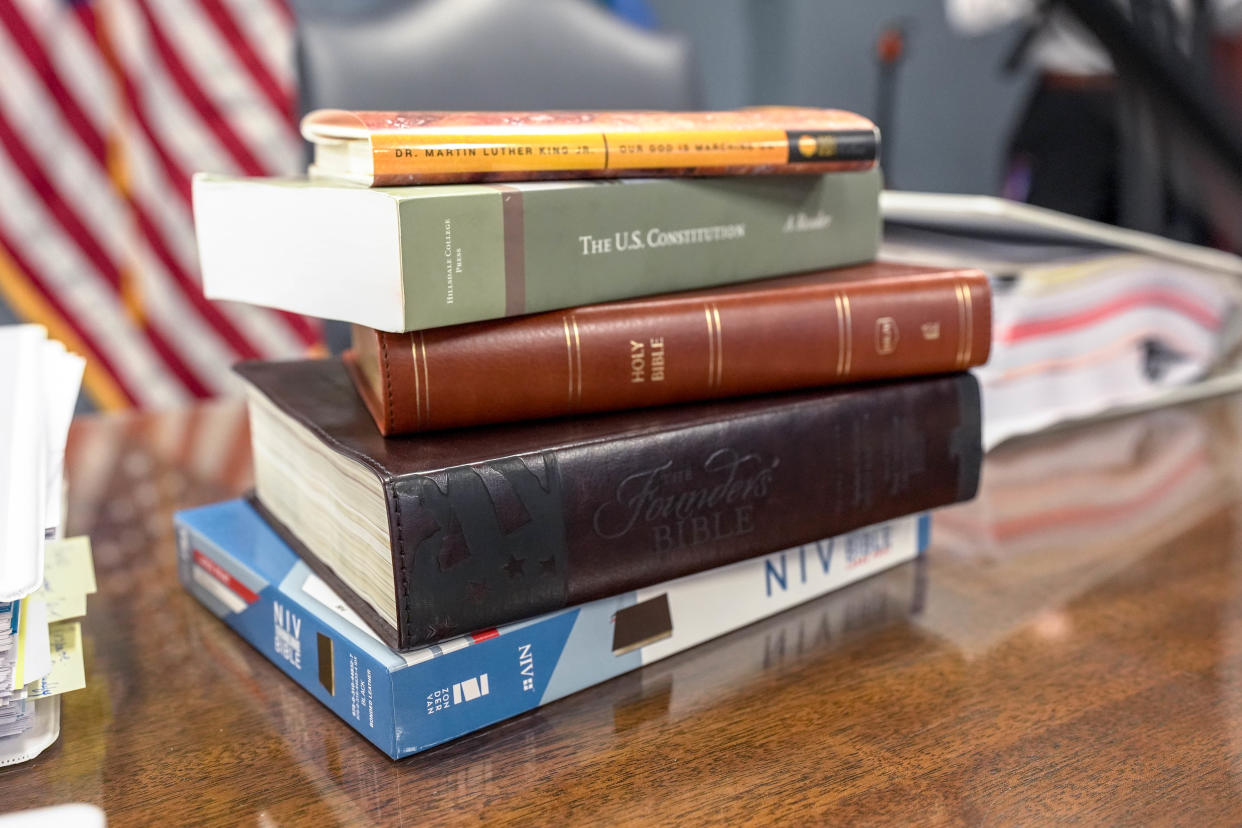There is a right way to teach religion in schools. It's about embracing diversity

For the last 12 years, I have served as the executive director of the Oklahoma chapter of the Council on American-Islamic Relations and, for the past five years, I also have had the privilege of teaching Religious Studies at a large university. With this extensive experience, I have interacted with tens of thousands of Oklahomans eager to learn about religion from a point of objectivity, sharing my expertise and ensuring a high standard of education. I also have been witness to the countless attempts of policymakers in our state that attempt to violate our constitutionally protected religious freedoms.
What I have gained from all of this is that I firmly believe there is a right way and a wrong way to teach about religion in public schools.
Let’s first start with the wrong. The recent mandate handed down from the Oklahoma State Department of Education requiring that public schools incorporate the Bible into lessons is not the first time Oklahoma lawmakers have tried to force Christianity on school children. In 2015, Senate Bill 46 sought to remove all liability from school districts that wanted to offer a course on the study of the Bible. In 2022, Senate Bill 1161 would have established the King James version of the Bible as the primary text to be used for public school courses on Christianity’s holy book. And this is just the tip of the iceberg. Countless bills, statements and mandates attempt to enshrine Christianity ― a very specific version of Christianity, at that ― as the governing force in our state.
Here is the problem: We do not live in a Christian country, regardless of the claims of social media trolls and bad-faith politicians. While Christian doctrine had an inarguable influence on our nation’s founding, the U.S. Constitution states, “Congress shall make no law respecting an establishment of religion, or prohibiting the free exercise thereof.” Our Founding Fathers theorized that we would be what we have become: a nation of diverse perspectives when it comes to religion, culture and politics.
More: Is Walters' call for putting the Bible in schools a legal issue or just for generating attention?
At what point would it violate the spirit, if not the words, of the Constitution by requiring the instruction of one particular religion in our public school system?
State schools Superintendent Ryan Walters' predictable argument is that the Bible will be used to “teach our kids about the history of this country and to have a complete understanding of Western civilization.” With this line of reasoning, I would hope Walters would also emphasize that we have to include lesson plans on how Christian slaveholders used the Bible to justify the atrocities of chattel slavery. We also should include in these lesson plans historical accounts of the African Muslims, approximately 15 percent of the total enslaved population, who were forced to abandon their faith under the oppressive hands of their Christian slave masters. And what about the African Muslim slaves who managed to gain their freedom and hold on to their faith, such as the infamous Prince Among Slaves, Abdul Rahman Ibrahima?
If we are going to teach about history, then we must teach about all of history. If we are going to teach about religion, then we must teach children about all the world’s major religions and do so from an objective viewpoint.
We are a state and country filled with an immense amount of religious diversity, which makes up our beautiful American tapestry. This diversity is also a source of our strength and an example to the world of the possibility of religious pluralism.
The challenge we face, however, is that this experiment in religious plurality, which started more than two centuries ago, has yet to prove to be successful. Recognizing that there is still much work to be done, stopping Ryan Walters and his Christian nationalist agenda from infiltrating our public school system is a good place to start.

Adam Soltani is executive director of the Council on American-Islamic Relations (CAIR), Oklahoma Chapter.
This article originally appeared on Oklahoman: Teaching religion in Oklahoma schools should include all major religions

